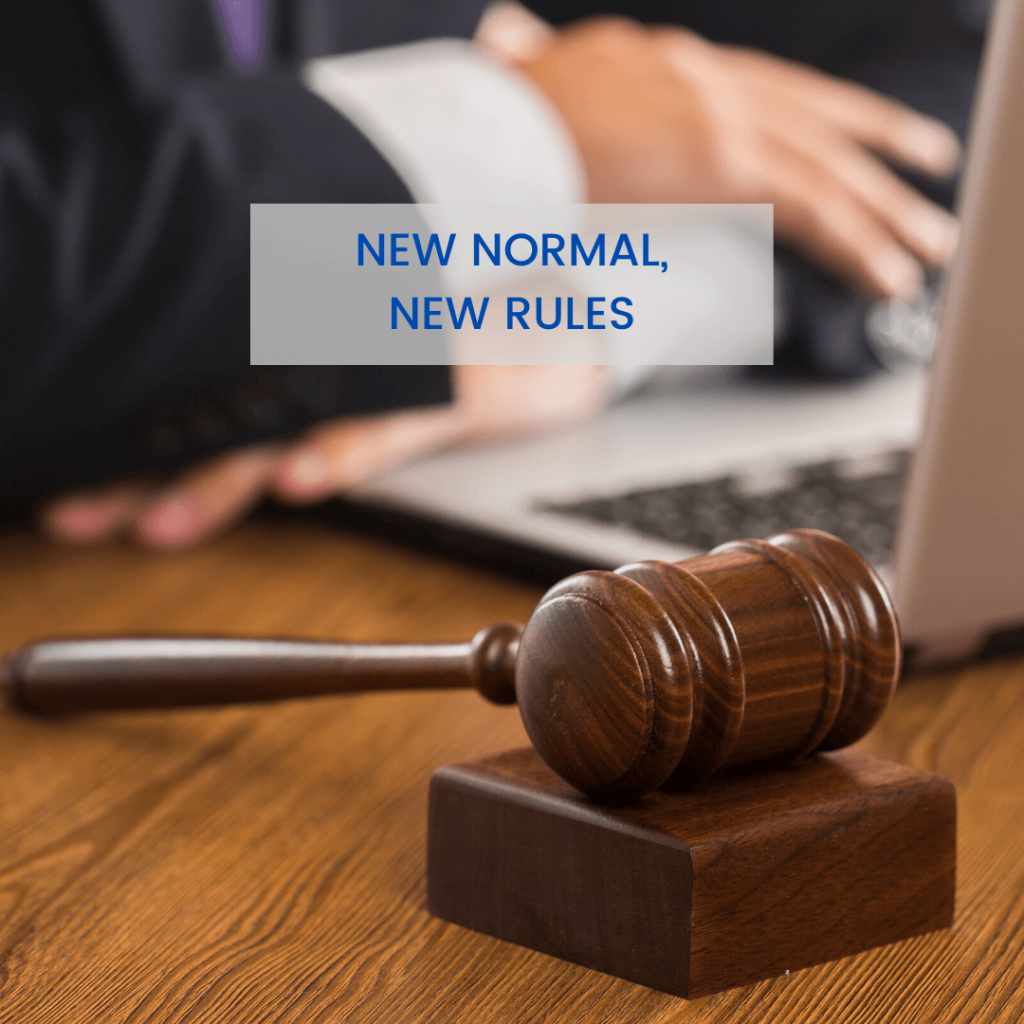
Published 18 May 2020, The Daily Tribune
Call it judicial clairvoyance, the recently-amended Rules on Civil Procedure have several provisions which are timely and in keeping with the so-called “new normal.” Last year, the Supreme Court approved the 2019 Proposed Amendments to the 1997 Rules of Civil Procedure (AM 19-10-20-SC) with the view “to make the disposition of every action and proceeding more just, speedy and inexpensive.” These New Rules took effect last 1 May 2020.
Numerous features of the New Rules help address the challenges which courts, judges, litigants and lawyers may face in a post-COVID-19 world.
For example, the New Rules now allow the filing and service of pleadings via electronic mail or email (Rule 13, Section 3 [d] and Section 5). However, the New Rules expressly require that it must be “authorized by the Court in places where the court is electronically equipped (Rule 13, Section 3 [d]).” For this kind of filing, “the date of electronic transmission shall be considered as the date of filing (Rule 13, Section 3, last paragraph).” Thus, the date stamp reflected on your email account shall be considered as the date of filing.
On the other hand, service of pleadings via email may be done if the other party consents to such mode (Rule 13, Section 9). Further, the New Rules prescribe a format for electronic service. The subject of the email must contain the case number, case title and the title of the pleading to be served. It must likewise “contain sufficient information to enable the court to ascertain from the title:
(a) the party or parties filing or serving the paper, (b) nature of the paper, (c) the party or parties against whom relief, if any, is sought, and (d) the nature of the relief sought (Rule 13, Section 12).”
Notwithstanding, initiatory pleadings and initial responsive pleadings, such as an answer, and sealed and confidential documents are removed from this rule of permissible electronic filing and service of pleadings (Rule 13, Section 14). Hence, these documents must be filed or served personally or through registered mail (ibid.).
A question may be asked: how do you now prove the filing or service of a pleading through electronic means? Well, the New Rules say that an electronically filed pleading is “proven by an affidavit of electronic filing of the filing party accompanied by a paper copy of the pleading… or a written or stamped acknowledgment of its filing by the clerk of court (Rule 13, Section 16 [d]).” Meanwhile, an electronically served pleading is proven by “an affidavit of service executed by the person who sent the email, together with a printed proof of transmittal (Rule 13, Section 17 [d]).” The printed proof of transmittal may pertain to a printout from the “sent” tab of your email account.
On the topic of initiatory pleading, it bears stressing that under the Revised Rules of Civil Procedure, the authorization of the affiant to act on behalf of a party, whether in the form of a secretary’s certificate or a special power of attorney, should be attached to the pleading. Failure to comply with the foregoing requirements shall not be curable by mere amendment of the complaint or other initiatory pleading, but shall be cause for dismissal of the complaint without prejudice, unless otherwise provided, upon motion and after hearing.
Hence, as a general rule, the verification and certification against forum shopping must be signed on behalf of the corporation pursuant to a valid board resolution. However, cases abound that such board resolution may be dispensed with if the verification and certification against forum shopping is signed by the following corporate officers: chairperson of the Board of Directors; president; general manager; personnel officer; or, employment specialist in labor cases.
These officers are accordingly in the position to verify the truthfulness and correctness of the allegations in the petition. It is not clear yet whether the jurisprudence on the authority of the foregoing officers to sign the initiatory pleading and certification against non-forum shopping even without the supporting board resolution ceases to apply in view of the foregoing revision in the Rules of Civil Procedure. Better take the side of caution: attach the board resolution to the initiatory pleading you will file with the court and serve on the other party.
Another innovation of the New Rules is that summons may now be served via email to the defendant’s email address if allowed by the court (Rule 14, Section 6 [d]). However, this is only a substituted mode of service of summons. Still, personal service is the preferred mode.
Undoubtedly, these changes in our court procedures will, at the very least, aid us in observing the physical distancing requirement of the new normal.
For comments and questions, please send an email to cabdo@divinalaw.com.

